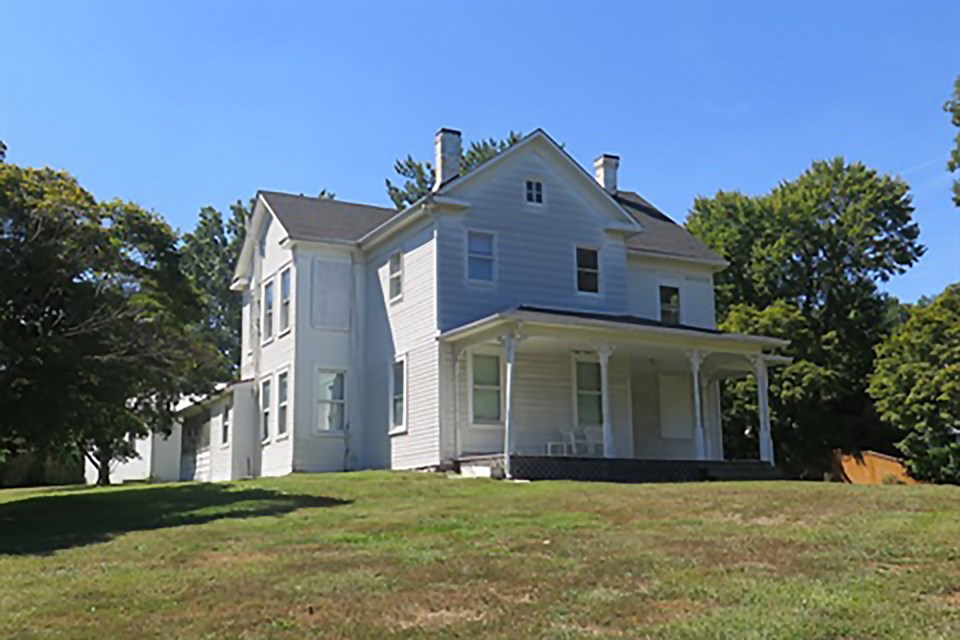[Update 4/20/24:]
Arlington County Board members approved the draft memorandum of understanding at their meeting today. Find full coverage in coming days.
[Update 4/17/24:]
Arlington County Manager Mark Schwartz has recommended County Board members approve the draft memorandum of understanding that will allow for transfer of ownership of the Reevesland property and its repurposing into a group home for adults with intellectual disabilities.
Adoption of the memorandum of understanding will not lead immediately to the sale of the property for repurposing, but is another step along the way.
[Update 4/14/24:]
Additional procedural steps toward completion of this initiative are on the agenda at the April 20, 2024, County Board meeting. The memorandum of understanding to be considered, however, has not yet been publicly released.
[Original coverage, 2/23/24:]
A procedural step that went largely under the radar on Jan. 20 moves the ball another step forward in securing a permanent use for the historic Reevesland farmhouse in Arlington’s Boulevard Manor community.
Arlington County Board members, as part of their consent agenda of non-controversial items, approved land-use changes that will permit Habitat for Humanity to move forward with its planned acquisition of the property, which for nearly 25 years has been owned by the county government but never put to any use.
The action, coupled with approval for the main building’s renovation and expansion last summer by the county government’s Historical Affairs and Landmark Review Board (HALRB), get all parties closer to finalizing the deal to provide housing and services for those with developmental disabilities.
The Jan. 20 action allows Habitat for Humanity to ask the county government to begin review of permits needed to begin renovation work. That work will begin after the sale of the site is finalized, something likely to happen within the current year.
“We fully expect to take ownership of the property and break ground on the project in 2024,” Kat Shaub, vice president of development for Habitat for Humanity of Washington, D.C. & Northern Virginia, told the GazetteLeader.
The farmhouse, located at 400 North Manchester St., was acquired by the county government for $1.8 million not long after the death of its last owner, Nelson Reeves. Reeves, who died in 2000, had been born in the house 99 years before and for much of his adult life operated the site’s dairy farm, the third generation of ownership dating back to the 1860s.
For years after the purchase, the property languished, with the county government seemingly unable to decide what to do with it.
In 2004, the property was designated a local historic district, which gave HALRB members effective control over exterior design changes. In 2017, members of that body approved demolition of a garage on the property and OK’d some other changes.
After three years of discussions, the county government and Habitat for Humanity in early 2020 signed a letter of intent to transform the property into a group home for L’Arche of Greater Washington, but the arrival of COVID just weeks later sent that momentum into limbo.
Habitat’s plans call for a two-story addition on the south side of the property and a one-story addition at the southwest side, which combined with the main house will provide for seven bedrooms and make the property compliant with Americans with Disabilities Act (ADA) requirements.
Successful completion of the effort “will ensure that Arlingtonians with intellectual disabilities will continue living in their county for generations,” L’Arche of Greater Washington said in a statement to the GazetteLeader.
“This project is unique for Habitat, and it means so much to be able to support L’Arche’s mission and serve more neighbors in need of a place to call home,” Shaub added.
HomeAid National Capital Region, the philanthropic arm of local builders that supports non-profit organizations, will serve as general contractor for the project in collaboration with Toll Brothers as the “builder captain.”
“This goes beyond a construction project for us,” said Courtney Bishop, communications and marketing director for HomeAid National Capital Region. “We want to ensure this historic property becomes a vibrant home again, [and we will] focus on the small things that will make a huge difference in the day-to-day lives of the people who reside there.”



